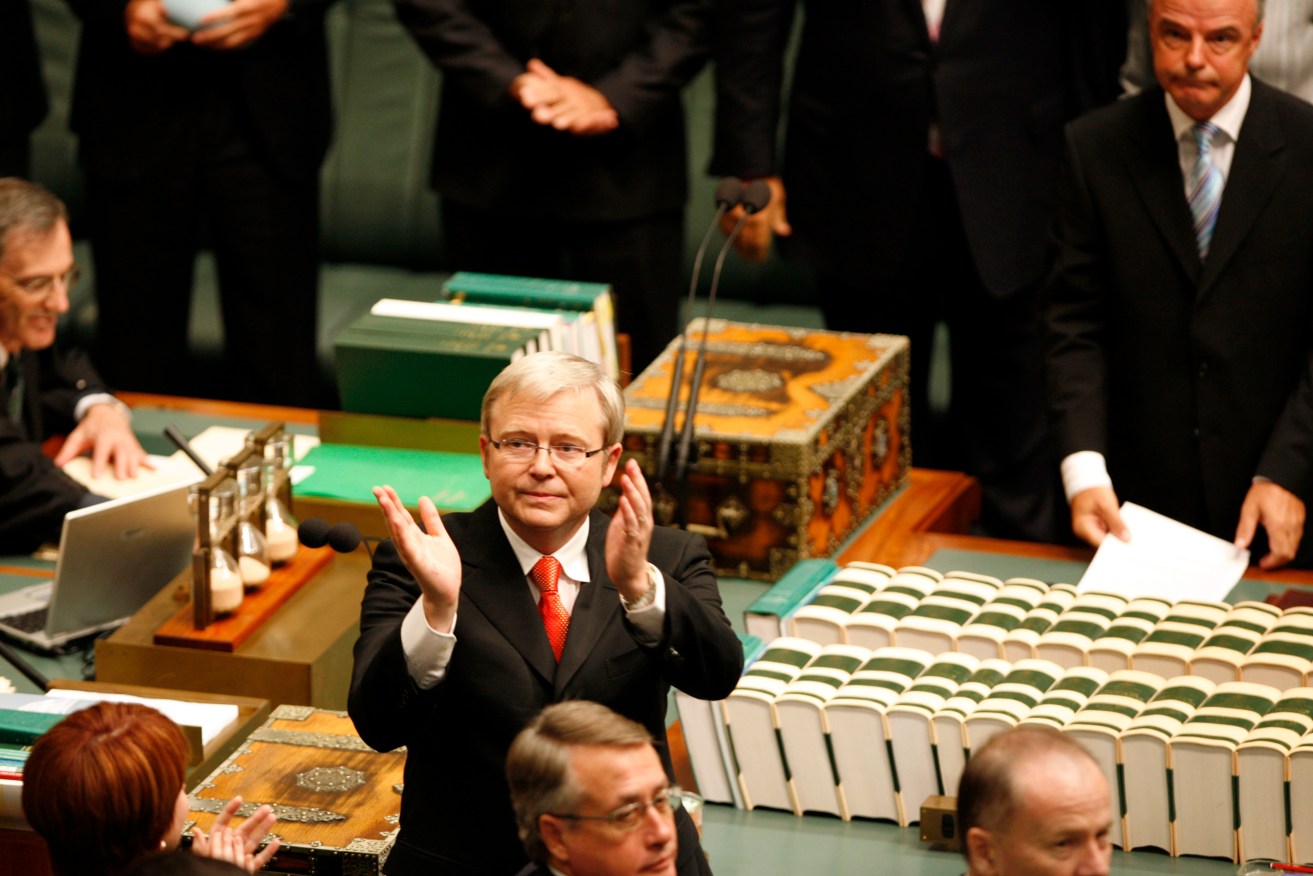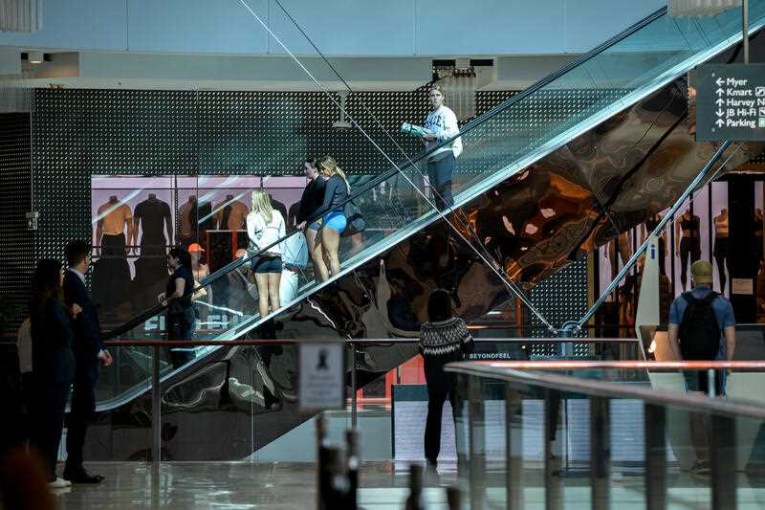Fifteen years after historic apology, govt renews plan to close the gap

Prime Minister Kevin Rudd turns acknowledge Indigenous people after giving his apology speech in 2008. Photo: AAP
Greater access to clean drinking water and support for domestic violence survivors are among the new measures to be funded under a $424 million plan to urgently reduce the gap between Indigenous Australians and their non-Indigenous counterparts.
Marking the 15th anniversary of the historic apology to the Stolen Generations, the federal government will release the second Closing the Gap Implementation Plan, which will focus on practicable ways to improve quality of life for Indigenous people.
The funding boost is on top of the $1.2 billion set aside in the October budget for tangible solutions.
This year’s implementation plan incudes $150 million over four years to provide safe and reliable water for remote communities.
Almost $22 million has been set aside for trauma-aware, culturally appropriate programs to support families dealing with domestic violence.
Family violence and prevention legal service providers supporting women and children experiencing family and sexual violence will receive $68.6 million over two years.
The plan also commits $38.4 million over four years for on-country education for remote students, and $11.8 million over two years to make nutritious food more accessible for communities.
Indigenous Australians minister Linda Burney presented the findings of the 2022 Closing the Gap report to parliament in November. It showed the divide in key areas of development had become worse.
It was the first report since the national agreement on Closing the Gap took effect and shows many of the targets are not on track.
Ms Burney said governments and departments were becoming better at working with Indigenous communities.
“Our measures are going to be more specific and more targeted, making real impacts that complement work under way in states and territories, and back-in Aboriginal and Torres Strait Islander community-controlled organisations to lead work in their communities,” she said.
Indigenous Australians assistant minister Malarndirri McCarthy said the investment would be a “game changer” for many remote communities.
‘Hear us’

Thousands of people gather to mark Sorry Day at the Esplanade in Perth in 2008. Photo: AAP
When Kevin Rudd apologised to the stolen generations on February 13, 2008 many Aboriginal and Torres Strait Islander people were filled with hope.
Fifteen years later some of those same people and their families are asking what has changed.
‘Stolen generations’ refers to Indigenous children who were forcibly removed from their families and communities and placed in institutions or with non-Indigenous families.
Many removals occurred as the result of laws and policies aimed at assimilating the First Nations population into the wider community and were based on the European belief that there was nothing of value in Indigenous cultures.
The 1997 Bringing Them Home report found that up to one third of Indigenous children were taken from their families between 1910 and 1970.
At the age of four, Gamilaroi and Wailwan woman Aunty Lorraine Peeters was taken from her family in Brewarrina and placed in the Cootamundra Domestic Training Home for Aboriginal Girls, in NSW’s Riverina.
Life at the Coota Girls Home was brutal, as survivors explained on their website.
“We were brainwashed to act, speak, dress and think white and we were punished if we didn’t,” Aunty Lorraine said.
“We were not allowed to talk in our language or about culture or about our families.”
Aunty Lorraine developed the Marumali – a Gamilaroi word meaning “put back together” – program, which aims to help stolen generations members heal and she runs with her daughter, Shaan Peeters.
“The apology brought about a lot of emotions, a sense of relief, a feeling of pride,” Shaan told AAP.
“There was also a sense of loss and grief and sadness at the same time, particularly for those survivors who fought and advocated for this and never got to see it come to fruition.
“I also felt a sense of peace and hope that things would improve, in particular that there be no repetition and they would stop taking our kids.”
On Monday, Aboriginal people and allies will march from Sydney’s Hyde Park to occupy Martin Place to call for a total overhaul of NSW’s child protection system.
Nationally, Indigenous children are more than 10 times likely to be in out-of-home care than other Australian children.
Shaan Peeters said she would like to see all of the recommendations implemented from the Bringing Them Home report.
“Particularly the recommendations relating to our young people in care, within the justice system and our social justice for families and mob in prison,” she said.
“No-one hears us.
“True self determination is found in our stolen generations organisations around Australia.
“We are our own voice but we want to be heard.”
-AAP








